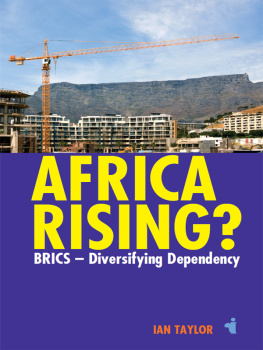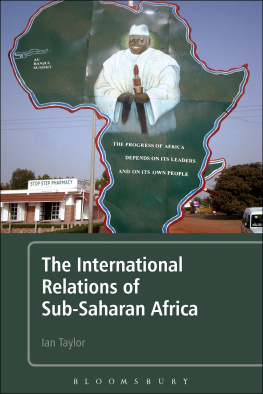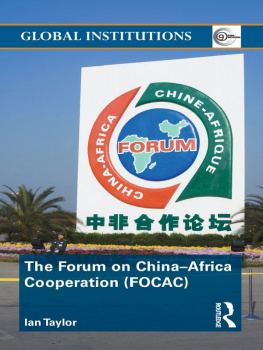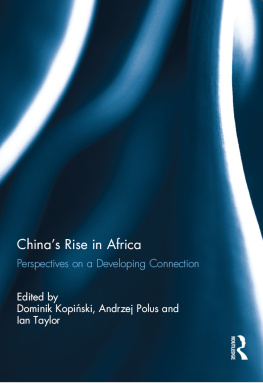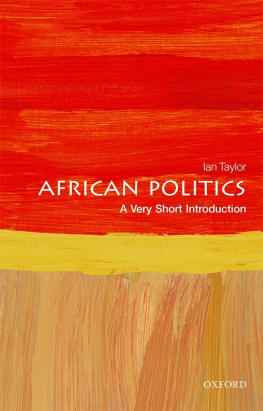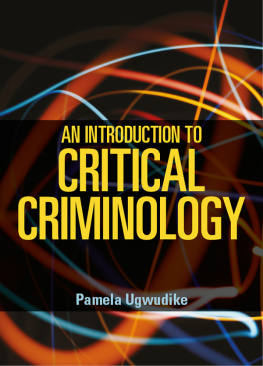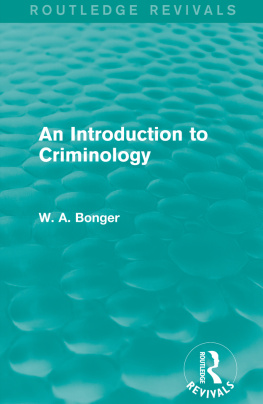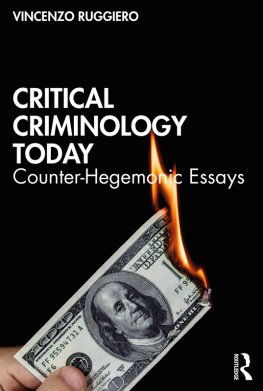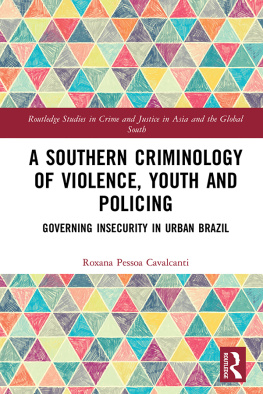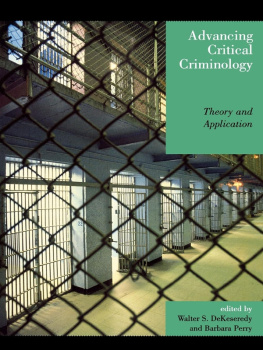Ian Taylor - Critical Criminology
Here you can read online Ian Taylor - Critical Criminology full text of the book (entire story) in english for free. Download pdf and epub, get meaning, cover and reviews about this ebook. year: 2013, publisher: Routledge, genre: Politics. Description of the work, (preface) as well as reviews are available. Best literature library LitArk.com created for fans of good reading and offers a wide selection of genres:
Romance novel
Science fiction
Adventure
Detective
Science
History
Home and family
Prose
Art
Politics
Computer
Non-fiction
Religion
Business
Children
Humor
Choose a favorite category and find really read worthwhile books. Enjoy immersion in the world of imagination, feel the emotions of the characters or learn something new for yourself, make an fascinating discovery.

- Book:Critical Criminology
- Author:
- Publisher:Routledge
- Genre:
- Year:2013
- Rating:5 / 5
- Favourites:Add to favourites
- Your mark:
- 100
- 1
- 2
- 3
- 4
- 5
Critical Criminology: summary, description and annotation
We offer to read an annotation, description, summary or preface (depends on what the author of the book "Critical Criminology" wrote himself). If you haven't found the necessary information about the book — write in the comments, we will try to find it.
Critical Criminology — read online for free the complete book (whole text) full work
Below is the text of the book, divided by pages. System saving the place of the last page read, allows you to conveniently read the book "Critical Criminology" online for free, without having to search again every time where you left off. Put a bookmark, and you can go to the page where you finished reading at any time.
Font size:
Interval:
Bookmark:

Ian Taylor,
Paul Walton
and
Jock Young

by Routledge & Kegan Paul Ltd
2 Park Square, Milton Park, Abingdon, Oxon, OX14 4RN
by Routledge
711 Third Avenue, New York, NY 10017
The publisher has gone to great lengths to ensure the quality of this reprint but points out that some imperfections in the original copies may be apparent.
The publisher has made every effort to trace copyright holders and welcomes correspondence from those they have been unable to contact.
ISBN 13: 978-0-203-12265-5 (ebk)
Editor: John Rex, University of Warwick

Sociology and other series of Social Science books published by
Routledge & Kegan Paul will be found at the end of this volume.
contributory essays
by
by Routledge & Kegan Paul Ltd
Broadway House, 6874 Carter Lane,
London EC4V 5EL and
9 Park Street,
Boston, Mass. 02108, USA
Set in Monotype Times type
and printed in Great Britain by
W & J Mackay Limited, Chatham
Copyright Routledge & Kegan Paul Ltd, 1975
No part of this book may be reproduced in
any form without permission from the
publisher, except for the quotation of brief
passages in criticism
ISBN 0 7100 8023 9 (c)
ISBN 0 7100 8024 7 (p)
The Thief he kindly spoke
There are many here among us
Who feel that life is but a joke.
But you and I we've been through life
And this is not our fate
So let us not speak falsely now
The hour is getting late.
Font size:
Interval:
Bookmark:
Similar books «Critical Criminology»
Look at similar books to Critical Criminology. We have selected literature similar in name and meaning in the hope of providing readers with more options to find new, interesting, not yet read works.
Discussion, reviews of the book Critical Criminology and just readers' own opinions. Leave your comments, write what you think about the work, its meaning or the main characters. Specify what exactly you liked and what you didn't like, and why you think so.

